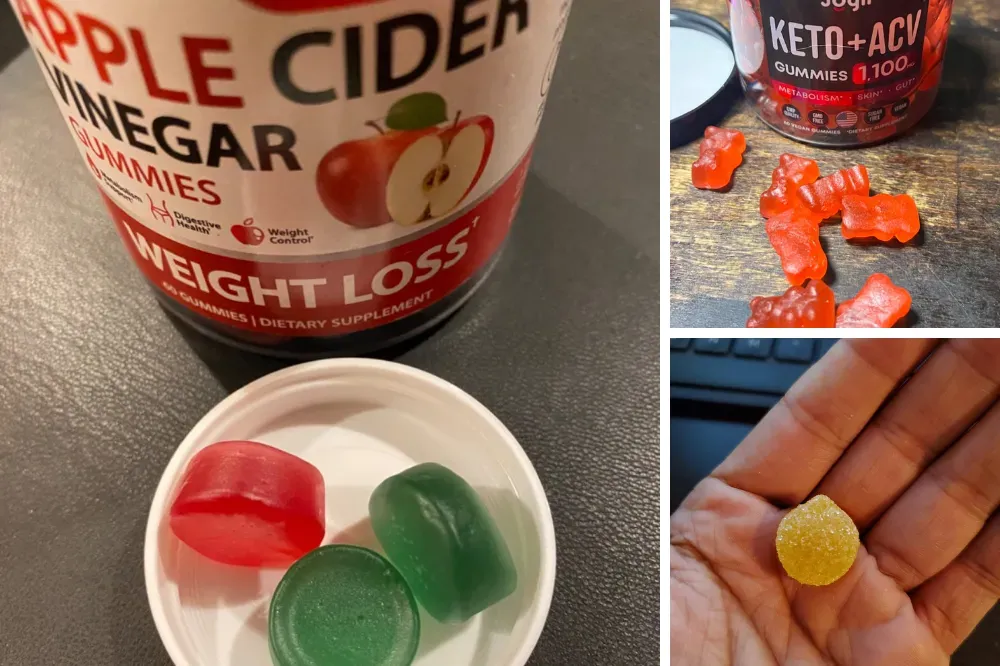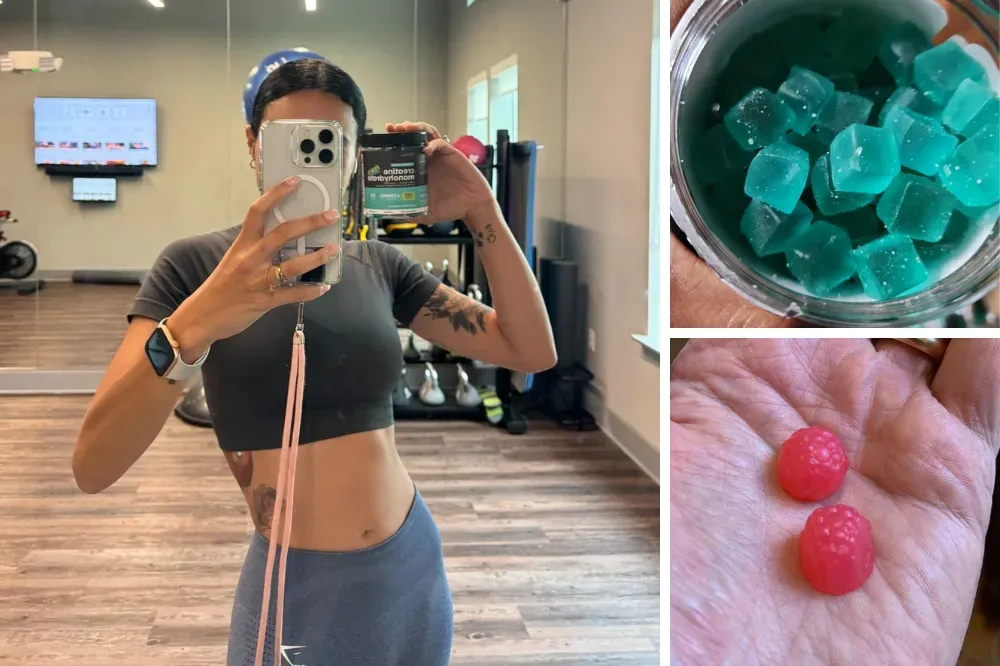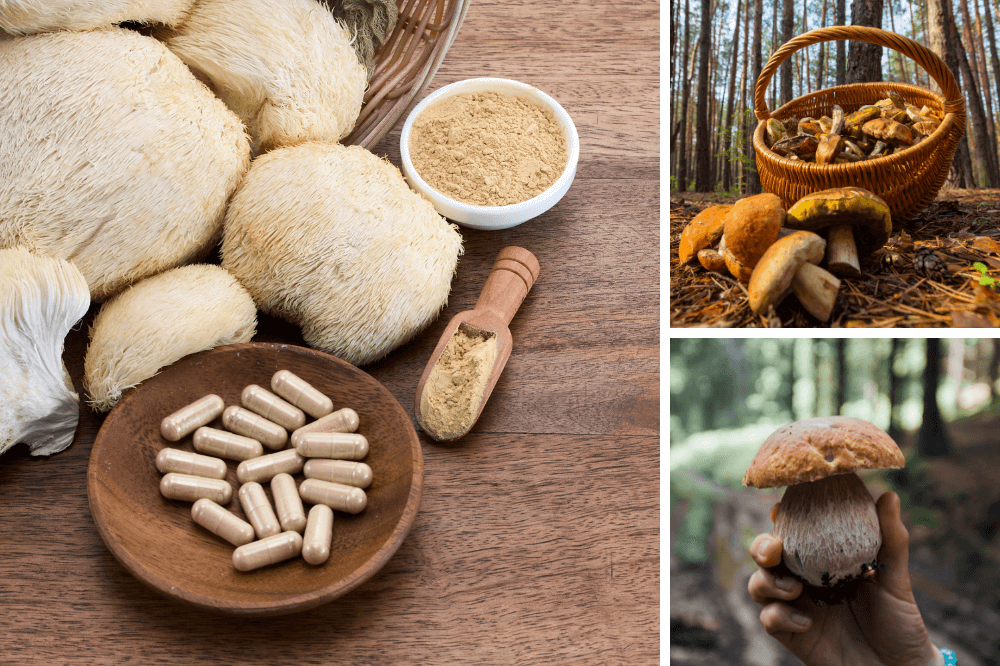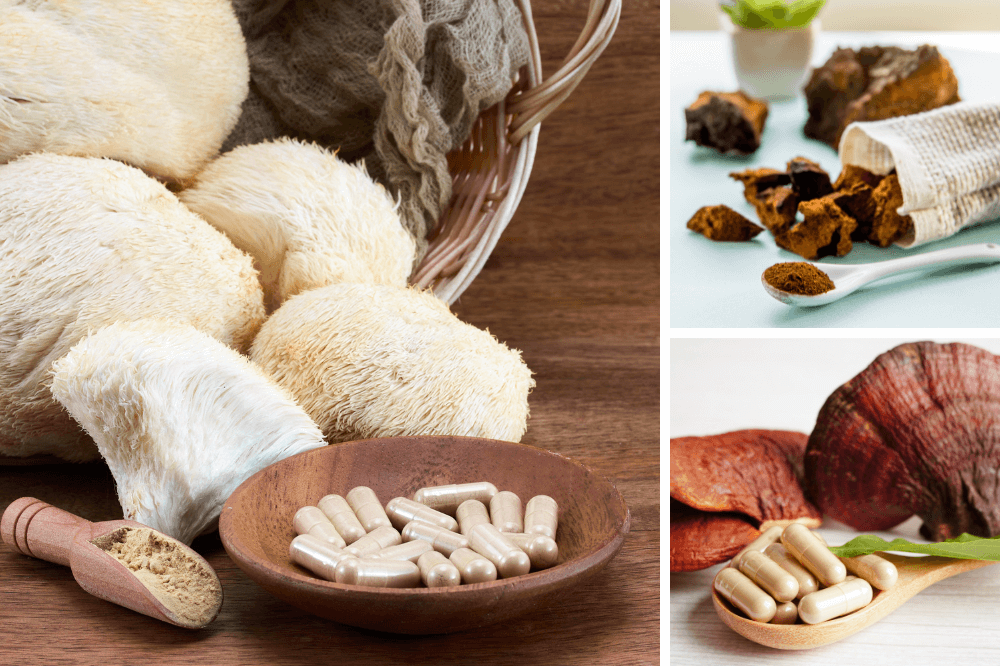Bloating can make your stomach feel tight, uncomfortable, and swollen. Fortunately, there are many ways to quickly reduce bloating and alleviate discomfort. Whether you're dealing with occasional bloating or it's become a chronic problem, adopting the right diet, lifestyle changes, and remedies can help you get rid of a bloated tummy fast.

Understanding Abdominal Bloating
Bloating occurs when the digestive system becomes filled with gas or air, leading to a feeling of fullness, pressure, or swelling in the stomach area. Bloating symptoms can be influenced by dietary factors and health conditions, making it crucial to understand what to avoid to alleviate these symptoms. This common condition can cause significant discomfort and even pain. It can be triggered by a variety of factors, including diet, digestive disorders, and certain health conditions. Understanding what causes your bloating is the first step toward getting rid of it effectively.
Common Causes of Bloating
Bloating can result from several things, such as:
- Diet – Certain foods, such as beans, lentils, and cruciferous vegetables like broccoli and cabbage, are notorious for causing bloating due to their high fiber content. Carbonated beverages and sugar-free gum containing artificial sweeteners also contribute to excess gas in the digestive system. Additionally, the fermentation of undigested food by gut bacteria can produce intestinal gas, leading to bloating and flatulence, especially in individuals with conditions like irritable bowel syndrome.
- Swallowed Air – Eating too quickly or talking while eating can cause you to swallow extra air, which gets trapped in your digestive system and leads to bloating.
- Digestive Disorders – Conditions like irritable bowel syndrome (IBS), small intestinal bacterial overgrowth (SIBO), lactose intolerance, and celiac disease can cause chronic bloating. Identifying and managing these disorders is key to long-term relief.
- Food Intolerances – Intolerance to lactose or gluten can lead to bloating and other digestive symptoms. An elimination diet can help pinpoint these issues.
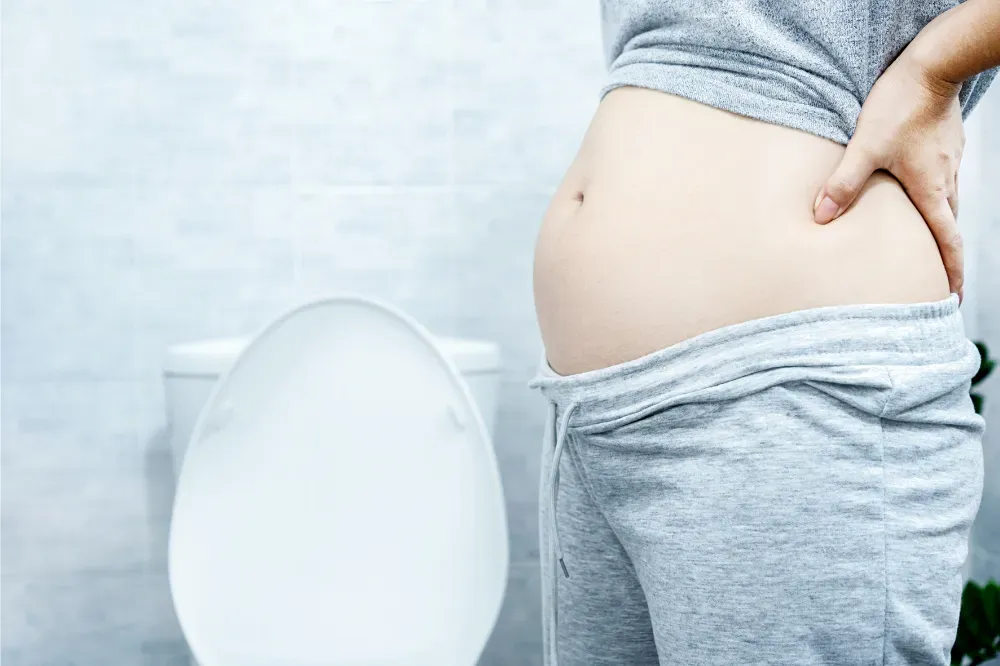
Quick Dietary Fixes to Reduce Bloating
Making dietary changes is one of the fastest ways to get rid of bloating. Here's how:
- Identify and Avoid Trigger Foods – Common bloating triggers include dairy, beans, carbonated beverages, and artificial sweeteners. Eliminate or reduce these foods to avoid bloating. Additionally, adopting a low FODMAP diet can help by reducing fermentable carbohydrates that lead to gas and bloating.
- Reduce Fiber Intake – While fiber is essential for digestion, consuming too much at once can cause bloating. High-fiber foods like beans, lentils, and certain vegetables can increase gas production. If you're experiencing bloating, try reducing your fiber intake and then slowly reintroducing it.
- Avoid Artificial Sweeteners – Sugar substitutes like sorbitol and mannitol, commonly found in sugar-free products, can cause bloating. Opt for natural sweeteners, such as honey or maple syrup, instead.
Eating Habits to Prevent Bloating
Adopting mindful eating habits can make a big difference in preventing bloating. Eating habits play a crucial role in managing stomach bloating, as certain practices can either contribute to or alleviate this uncomfortable condition.
- Eat Slowly – Eating quickly causes you to swallow air, which can get trapped in your digestive system. Slowing down and chewing your food thoroughly can help reduce the amount of air swallowed.
- Eat Smaller Meals – Large meals can overwhelm the digestive system, leading to bloating. Eating smaller, more frequent meals helps prevent overloading your digestive system.
- Practice Mindful Eating – Focus on your body's hunger and fullness cues. Avoid overeating, as it can stretch the stomach and lead to a bloated feeling.
Staying Hydrated
Staying hydrated is crucial for keeping your digestive system running smoothly and preventing constipation, which can cause bloating. Drink at least 8 glasses of water a day, and avoid carbonated beverages that introduce excess gas into your stomach. Herbal teas, such as peppermint and ginger tea, can also provide relief by soothing the digestive tract and reducing gas. Staying hydrated can also help relieve symptoms of bloating.
Exercise to Get Rid of a Bloated Tummy
What relieves bloating fast? Exercise can be an effective method to alleviate the discomfort of bloating quickly.
Physical activity can aid in moving gas through the digestive system, reducing bloating.
- Engage in Regular Exercise – Regular exercise helps stimulate digestion, reduces gas buildup, and prevents constipation. Aim for at least 30 minutes of moderate exercise each day, such as walking or cycling.
- Try Yoga for Bloating Relief – Certain yoga poses, such as twists and stretches, can help massage the digestive organs and encourage the release of trapped gas. Poses like the seated twist and wind-relieving pose are particularly effective.

Over-the-Counter Remedies for Bloating
If dietary changes and exercise don't provide immediate relief, consider over-the-counter solutions.
- Simethicone Products – Simethicone-based products break up gas bubbles in the digestive tract, providing quick relief from bloating.
- Antacids and Digestive Enzymes – Antacids can help neutralize stomach acid, while digestive enzymes help break down foods that may be difficult to digest, preventing bloating.
- Probiotics – Probiotics support gut health by introducing beneficial bacteria that can improve digestion and reduce bloating. Look for probiotic supplements with strains like Lactobacillus and Bifidobacterium.

Natural Remedies for Bloating
Several natural remedies can relieve bloating quickly.
- Peppermint Oil – Peppermint oil can relax the muscles in the digestive tract, helping to relieve gas and bloating.
- Ginger – Ginger has long been used as a natural digestive aid. It can help stimulate digestion and reduce bloating. Drink ginger tea or take ginger supplements to relieve bloating.
- Heating Pads – Applying a warm heating pad to your stomach can help relax the muscles in your abdominal area and alleviate bloating.
Managing Stomach Pain and Discomfort
Stomach pain and discomfort can be a debilitating symptom of bloating. To manage stomach pain and discomfort, it's essential to identify the underlying cause of bloating. If you experience persistent or severe stomach pain, it's crucial to consult with a healthcare professional to rule out any underlying medical conditions.
In the meantime, here are some tips to help manage stomach pain and discomfort:
- Apply Heat: Applying a heating pad or a warm compress to the stomach area can help relax the stomach muscles and relieve pain. The warmth can soothe the digestive tract and provide immediate comfort.
- Practice Relaxation Techniques: Stress can exacerbate stomach pain and discomfort. Practicing relaxation techniques such as deep breathing, meditation, or yoga can help reduce stress and alleviate symptoms. These activities can calm the digestive system and reduce the likelihood of bloating.
- Avoid Trigger Foods: Identify and avoid foods that trigger bloating and stomach pain. Common culprits include dairy products, gluten, and high-FODMAP foods. Keeping a food diary can help you pinpoint specific foods that cause discomfort.
- Stay Hydrated: Drinking plenty of water can help flush out toxins and reduce inflammation in the digestive tract. Proper hydration supports overall digestive health and can prevent constipation, which often contributes to bloating.
Low-FODMAP Diet and Food Intolerances
A low-FODMAP diet is a highly effective way to manage bloating and digestive symptoms. FODMAPs (Fermentable Oligosaccharides, Disaccharides, Monosaccharides, and Polyols) are types of carbohydrates that can be difficult for some people to digest.
Here are some tips for following a low-FODMAP diet:
- Identify High-FODMAP Foods: Common high-FODMAP foods include wheat, dairy products, beans, and certain fruits and vegetables. Knowing which foods are high in FODMAPs can help you make better dietary choices.
- Replace High-FODMAP Foods with Low-FODMAP Alternatives: For example, replace wheat bread with gluten-free bread or try lactose-free milk. There are many delicious low-FODMAP options available that can help reduce bloating.
- Gradually Reintroduce FODMAPs: Once you've identified and eliminated high-FODMAP foods, you can gradually reintroduce them to see which ones trigger symptoms. This process helps you understand your specific food intolerances and manage your diet more effectively.
Food intolerances, such as lactose intolerance or gluten intolerance, can also contribute to bloating and digestive symptoms. If you suspect you have a food intolerance, it's essential to consult with a healthcare professional for proper diagnosis and treatment. They can provide guidance on managing your diet to minimize bloating and other digestive issues.

Mindful Eating Practices to Prevent Bloating
Mindful eating practices can help prevent bloating by reducing stress, improving digestion, and promoting healthy eating habits. Here are some tips for mindful eating:
- Eat Slowly: Eating quickly can lead to swallowing air, which can contribute to bloating. Take your time to chew your food thoroughly and savor each bite. This not only aids digestion but also enhances your eating experience.
- Avoid Distractions: Turn off the TV, put away your phone, and eat in a distraction-free environment. Focusing on your meal allows you to be more aware of how much you're eating and how your body feels.
- Pay Attention to Hunger and Fullness Cues: Eat when you're hungry and stop when you're full. Avoid overeating, which can put pressure on the digestive system and lead to bloating. Listening to your body's signals can help you maintain a healthy digestive system.
- Choose Low-FODMAP Foods: If you're following a low-FODMAP diet, choose low-FODMAP foods to reduce the risk of bloating. These foods are easier to digest and less likely to cause gas and bloating.
By incorporating these mindful eating practices into your daily routine, you can reduce the risk of bloating and promote overall digestive health. Mindful eating not only helps prevent bloating but also enhances your relationship with food and your body.
Managing Stress to Prevent Bloating
Stress has a direct impact on your digestive health and can contribute to bloating. Incorporating stress-reducing activities like deep breathing, meditation, and yoga can help improve digestion and reduce bloating. Getting enough sleep is also crucial for reducing stress and promoting healthy digestion.
Herbal Teas for Bloating Relief
Certain herbal teas can provide quick relief from bloating.
- Peppermint Tea – Peppermint has natural properties that can relax the digestive muscles and reduce gas production.
- Ginger Tea – Ginger tea stimulates digestion and relieves bloating.
- Chamomile Tea – Chamomile has anti-inflammatory properties that can soothe the digestive system and reduce bloating.

Lifestyle Changes for Long-Term Bloating Relief
To keep bloating at bay in the long term, making small lifestyle changes can have a big impact. Exercise regularly, stay hydrated, eat a balanced diet, and get plenty of sleep. Additionally, avoiding smoking and limiting alcohol intake can improve your digestive health and reduce bloating.
Medical Conditions That Cause Bloating
Chronic bloating may be a symptom of an underlying medical condition, such as IBS, GERD, celiac disease, or inflammatory bowel disease (IBD). If you experience persistent bloating, abdominal pain, bloody stools, or unexplained weight loss, seek medical attention to rule out these conditions.
When to See a Doctor About Bloating
While occasional bloating is common, severe or chronic bloating accompanied by other symptoms can be a sign of a more serious issue. If you're experiencing bloating along with symptoms like abdominal pain, nausea, vomiting, or changes in bowel habits, consult your healthcare provider.

Summary
Bloating is a common and uncomfortable issue that can be resolved with simple dietary and lifestyle changes. Identifying trigger foods, eating slowly, staying hydrated, and incorporating natural remedies like peppermint oil and ginger can provide quick relief. Regular exercise, managing stress, and using over-the-counter solutions can also help. If bloating persists, seek medical advice to rule out underlying conditions.
FAQ
What are the most common causes of bloating? Common causes of bloating include high-fiber foods, carbonated drinks, swallowing excess air, and digestive disorders like IBS or lactose intolerance.
How can I prevent bloating? Prevent bloating by avoiding trigger foods, drinking plenty of water, eating slowly, and practicing mindful eating. Regular exercise and managing stress can also help.
When should I seek medical attention for bloating? Seek medical attention if bloating is persistent or severe and accompanied by symptoms like abdominal pain, bloody stools, or weight loss.

